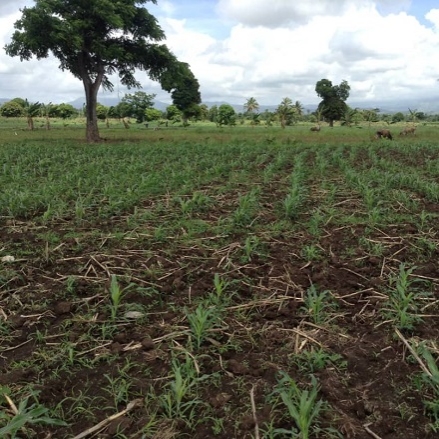Jerrica St Vil, a community health worker, and Abelard Jeremie, a pastor, both live in rural areas of Haiti’s Southern Plain, one of the most important food production regions in the country. Although they both have other vocations within the community, they have always relied on agriculture as the main source of income for their families.
Food insecurity, the other crisis
Since the onset of the COVID-19 pandemic, the risk of food insecurity in Haiti is heightened. Even before the pandemic, nearly 35% of the Haitian population already needed urgent food support (World Food Programme). Now, the pandemic threatens to worsen this situation, due to external threats such as the volatility of global financial markets, decreased migrant remittances from overseas, and the closure of the border with the Dominican Republic, which limits access to food supply.
Although the local agriculture sector contributes only up to 45% of Haiti’s food needs, it is essential to sustain production to avoid further food insecurity. Agriculture is also the principal source of income for many rural families. Jerrica and Abelard have felt the need to invest more in their agricultural production during this crisis, both to respond to the growing demand for food in their country, and also to sustain their own livelihoods during this difficult time. However, they face challenges to sustaining or increasing their production such as a lack of good quality seeds and fertilizers, as well as the resources and technical assistance for plowing and irrigation of land.
Following recent financial crises and social unrest in Haiti, along with setbacks such as droughts, many farmers’ finances are exhausted. Most farmers have few resources for the agricultural services and inputs as well as limited access to markets. The pandemic has only exacerbated this problem, with declines in remittances, and rising prices but decreasing access to agricultural inputs and services.
"During the last planting seasons, we recorded a decrease in productivity, which has consequently caused a drop in our income," said Abelard. Jerrica added, “Because of our decreased income, we did not have enough savings to sustain the next cropping season."
Increasing food production and farmers’ income


“Our community welcomed this project with joy. This support is important for us because members of the entire production chain, including farmers, agricultural workers, merchants, and consumers will benefit,” said Abelard.

"I received seeds to grow corn and peas. I also got support for plowing and fertilizer. Today, my plants are already starting to grow," said Jerrica proudly.

